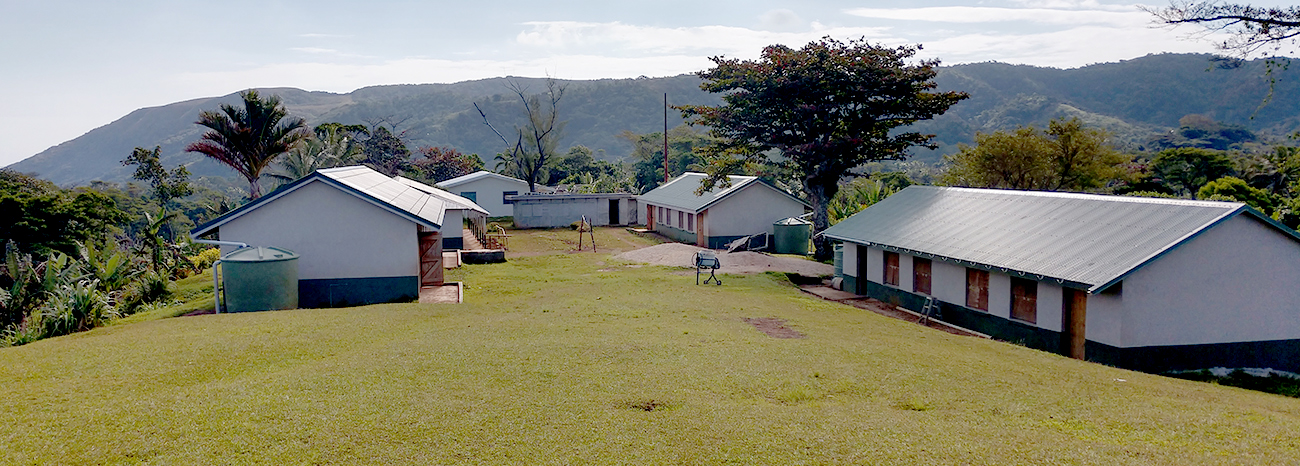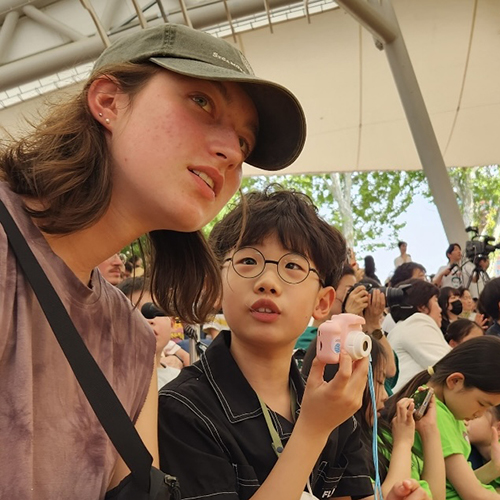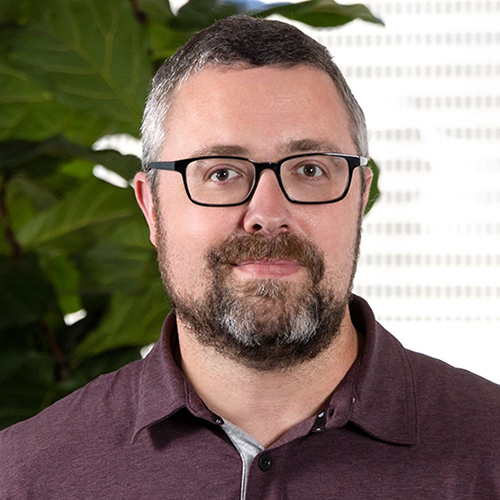His last quarter at the University of Washington, Jacob Ball (BS, Biology, 2017) took a biology course that would change his life.
The course, Biology 492: Teaching Biology Inclusively to Diverse Audiences, included opportunities for students to provide instructional assistance and STEM awareness in underserved communities. Ball embraced the experience and found he had a talent for teaching.
Toward the end of the quarter, principal lecturer Linda Martin-Morris, who taught the class, encouraged Ball to challenge himself further. “I told him, ‘You are doing a lot of good teaching, but you’re doing comfortable teaching,’” she says. “He took that to heart.”

In fact Ball was so inspired by that conversation that he decided to look into Teach for America and Peace Corps opportunities after graduation. He decided on the Peace Corps because “I realized that any program in America likely has more resources than just about any school Peace Corps operates in.”
That has certainly been the case in Vanuatu, the South Pacific nation where Ball has spent nearly two years teaching and spearheading community projects as a Peace Corps volunteer. His home is on Tanna, one of Vanuatu’s 83 islands.
It hasn’t been easy, but I really believe I’m making a difference.
Ball first learned Bislama, the national language, and then began his assignment to teach English at Tanna’s largest school. When the principal discovered that Ball had experience teaching science, she added science and mathematics to his duties. Unfortunately the school — the largest in the province — had no science lab, nor did any other school in the province. After meeting with the province’s highest ranking education official about the problem, Ball was officially tasked with developing an alternative curriculum for low-resource schools.
As Ball grappled with the project, he was thankful for lessons learned in Martin-Morris’s course, as well as a course on education theory and active learning strategies taught by UW biology professor Brian Buchwitz. “The main takeaway from these courses was definitely about meeting the students you are teaching where they are instead of sticking to a rigid lesson plan,” Ball says. On Tanna, that meant creating lesson plans for students with zero experience in science education. “None of them had ever conducted a lab,” Ball says. “It was unlike any class I’d ever taught before.”

Ball also had to consider available resources when designing experiments. In one experiment, for example, he replaced the unavailable enzyme peptin with papain, an enzyme found in papayas growing in every Vanuatu village. He recently partnered with students in Biology 492 to further expand the curriculum.

Beyond those challenges, Ball had to adjust to a dramatically different classroom culture in Vanuatu, in which students resist speaking up. This posed a huge challenge given the participatory teaching methods that Ball honed at the UW. “You can’t even imagine the extent to which students here are terrified of classroom participation,” he says. “When I call on a student, even in the secondary school, they shut down. One of the most common responses is for students to get out of their seats and climb under their desks, as if I’ll forget that they’re there.”
Recognizing the importance of participation to the learning process, Ball has found ways to engage his reticent students, such as calling one student to the blackboard to solve a problem and then allowing that student to give the chalk to anyone else in the class to solve the next problem. “I try to turn it into a game,” Ball says. “This creates an environment that is more fun and less scary.”

Now well into his second year in Vanuatu, Ball has branched out from full-time teaching to pursue other resource development projects in Tanna, including setting up a water system that provides running water and VIP (ventilated improved pit) toilets for the school, clinic, and community. He also helped expand the island’s agriculture program to provide students with school lunches, and set up a library at the school. Now he is seeking funding to add solar power for a few computers. And he is continuing to develop a science curriculum for low-resource communities, a project he is so committed to that he applied for a Peace Corps extension to stay in Vanuatu an additional year. “It hasn’t been easy, but I really believe I’m making a difference,” he says.
Ball also is thinking about what comes next. He hasn’t decided whether he will enter graduate school or seek a paying job when he returns to the US. “I was always pretty interested in teaching, but after this experience, I’m starting to wonder if there’s a way I could make a bigger impact,” he says, inspired by his resource development projects. Either way, Ball is optimistic about life’s possibilities.
“I think about one of my favorite quotes: ‘Luck is where preparation meets opportunity,’” he says. “I think that the UW and Peace Corps have prepared me well for the future.”
More Stories

The Mystery of Sugar — in Cellular Processes
Nick Riley's chemistry research aims to understand cellular processes involving sugars, which could one day lead to advances in treating a range of diseases.

Finding Family in Korea Through Language & Plants
Through her love of languages and plants — and some serendipity — UW junior Katie Ruesink connected with a Korean family while studying in Seoul.

Working Toward Responsible AI
Artificial intelligence (AI) is an essential tool at Indeed, a global job-matching and hiring platform. Trey Causey (2009) works to ensure that the company's AI promotes equity and fairness.